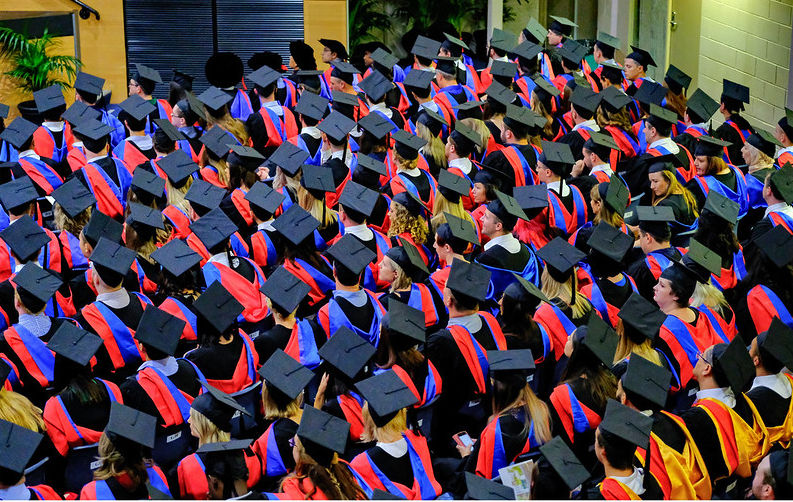Richard Heller: Universities can spearhead regional development & the distributed university model
June 19, 2022
Universities should take an expanded leadership role in regional development, the Distributed University model provides a mechanism.
As many people have realised, the higher education sector is in big trouble at present. Some of the reasons are described in my recent open access book – the Distributed University for Sustainable Higher Education. In summary, universities have become over-managed business enterprises where the market is dominant over societal global and regional educational needs. Universities are heavy on the environment, emphasise competition rather than collaboration, prioritise research over education, and use educational methods which are not consistent with the way that people gain information in today’s world. Many universities are unhappy places in which to work. The financial model of reliance on overseas student income to cross subsidise research has been shown to be flawed by the Covid pandemic and changes in geopolitical priorities.
I have set out a number of solutions, the key to which is a pivot to online education. This will allow education to be distributed to where it is needed, reducing regional and global inequalities in access and impact on the environment. It distributes trust in place of managerialism, and collaboration in place of competition, prioritises education over research, and sets up the higher education sector to adapt to changes in the ways we work and learn today.
In particular, we need to utilise the expertise and commitment of so much excellence found in universities towards addressing societal priorities, including the reduction in global and regional inequality. Universities are committed to creating graduates with skills that employers need and their academics are expected to commit to some form of community service, in addition to research and education. So universities have both the ability and desire to make societal contributions, even if they struggle to surface in the face of the dominant business model. Many universities have contributions to regional development in their mission statements, and all universities do contribute education to meet the requirements of labour markets. Extending this contribution to boosting regional labour markets would be greatly assisted by a new structure that distributes education appropriately to the regions.
To quote the OECD Regional Development Policy: “Regional development is a broad term but can be seen as a general effort to reduce regional disparities by supporting (employment and wealth-generating) economic activities in regions” its new approach involves “a shift away from redistribution and subsidies for lagging regions in favour of measures to increase the competitiveness of all regions”.
The focus of this article is to emphasise the potential of the higher education sector to provide leadership for regional development in Australia.
The stimulus for taking this approach comes partly from the recurring theme of the need to boost the rural health workforce to reduce inequalities in access to health services. Rather than consider health service development in isolation, placing this in the context of broader regional development would seem appropriate.
The diagram shows how the Distributed University might work. Most education takes place in local hubs – which may be physical or virtual or a combination of both, and are supported by an IT infrastructure and essential administrative functions. These hubs replace large centralised campuses.
Of importance for this discussion, is that the hubs can be placed in regional areas to reflect the needs of rural students. Students can live there and access education both locally and online as they remain part of the larger university community linked through social media and online discussions. Links with local community and industry would create opportunities for active learning such as through local internships. Graduates may thus be motivated to work locally. Academic staff may also live locally and research local issues and collaborate with other educational providers. As well as the potential for boosting regional health services, the hubs could become vibrant locations for teaching, research and community involvement and be a magnet for the influx of other professional, business and trades people and their support infrastructure. Regional development and regeneration become feasible, with universities taking a leadership role.
As well as being replicated regionally, activities in the top half of the diagram can take place peripherally in large cities, as well as globally. They can also take place over time as educational needs change for people over career and life course.
Other benefits of a distributed university, such as reduction in carbon emissions would follow as large central campus buildings are no longer needed and travel is reduced, including for international students. Of course, as shown in the lower half of the diagram, a number of centralised activities would remain to allow university administrations to ensure quality and reflect broader national and global societal needs. This structure might well change the nature of the relationships between managers and academic and support staff, as activities are distributed and people connect with each other more often virtually rather than physically. Regional development would become core rather than just something in a mission statement.
Richard Heller is Emeritus Professor at the Universities of Newcastle, Australia and Manchester, UK. He was Director of The Centre for Clinical Epidemiology and Biostatistics at the University of Newcastle, and consultant physician at the John Hunter Hospital. Then as Professor of Public Health in Manchester he set up the University’s first online master’s degree. He founded and coordinated Peoples-uni to build Public Health capacity in developing countries at low cost, through online learning. His recent open access book is The Distributed University for Sustainable Higher Education.

